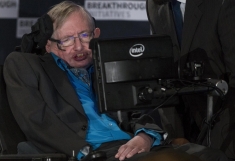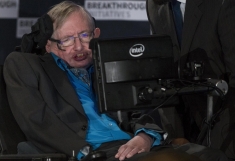The end of the world is gradually becoming a near certainty, according to famous theoretical physicist Stephen Hawking, and human beings have no one else to blame but themselves for the way they are misusing science and technology.
In an interview with Radio Times, Hawking was asked if he thinks the world will end due to the force of nature or due to humans. The 74-year-old cosmologist replied by pointing out that human beings "face a number of threats" that are all because of our own doing, such as "nuclear war, global warming and genetically engineered viruses."
He further warned that advances in science and technology will create "new ways things can go wrong."
"Although the chance of a disaster to planet Earth in a given year may be quite low, it adds up over time, and becomes a near certainty in the next thousand or 10 thousand years," Hawking said, as quoted by BBC News.
Although he believes human beings will eventually be able to set up self-sustaining colonies in outer space to preserve their species, Hawking said this possibility will not happen in the coming centuries. As such, mankind still needs to take care of the planet.
"By that time we should have spread out into space, and to other stars, so a disaster on Earth would not mean the end of the human race. However, we will not establish self-sustaining colonies in space for at least the next hundred years, so we have to be very careful in this period," he said.
Hawking highlighted the importance of using science and technological advances for the greater good, especially by young ones nowadays.
"It's important to ensure that these changes are heading in the right directions. In a democratic society, this means that everyone needs to have a basic understanding of science to make informed decisions about the future," he said.
"So communicate plainly what you are trying to do in science, and who knows, you might even end up understanding it yourself," he added.















